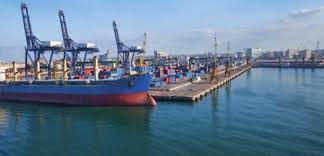The African Development Bank Group (AfDB) has approved a corporate loan of ZAR 2.5 billion (approximately $139 million) to the City of Johannesburg Metropolitan Municipality, making it the first time the bank is directly lending to a subnational government in Africa without a sovereign guarantee. This historic deal is expected to finance over 100 critical infrastructure projects in South Africa’s largest city, directly benefiting more than 6 million residents.
The loan, described by the AfDB as a strategic move, will help Johannesburg invest in key sectors such as electricity, water supply, sanitation, and solid waste management. The investment will support the municipality’s effort to modernise urban infrastructure, boost service delivery, and improve the quality of life for its residents.
According to Kennedy Mbekeani, the AfDB’s Director General for Southern Africa, Johannesburg plays a central role in Africa’s urban future. “Johannesburg is not just South Africa’s largest city – it contributes 16% to the country’s GDP and serves as a gateway for investment across the continent. By strengthening its infrastructure backbone, we’re investing in Africa’s urban future,” he said.
The AfDB has structured the loan with strong oversight mechanisms to ensure transparency, compliance, and effective financial management throughout the loan lifecycle. These safeguards will support Johannesburg in managing the funds prudently and ensuring accountability at all levels of implementation.
In addition to the loan, the Bank is seeking an extra $1.5 million grant from its Urban and Municipal Development Fund. This fund will be used to support Johannesburg’s ongoing municipal reforms, enhance governance structures, and help the city build climate-resilient urban infrastructure. The grant will also fund capacity-building initiatives in planning and project management to ensure that the city’s urban transformation is sustainable in the long term.
Under the approved financing plan, Johannesburg will use the funds to improve service delivery in four major sectors. In electricity, the municipality will upgrade aging power distribution networks, install smart meters, expand renewable energy capacity, and connect 3,200 new households to the grid. These improvements are expected to reduce electricity losses, improve energy efficiency, and enhance access to electricity in low-income communities.
In the water sector, the loan will support the rehabilitation of aging pipelines, upgrade water treatment facilities, and help the city reduce non-revenue water losses from 46% to 37%. This effort will ensure more reliable water supply and improve water quality for thousands of households.
For sanitation, the project will focus on upgrading sewer lines and wastewater treatment plants, ensuring safer and cleaner urban environments. The city aims to reduce the number of sewage spills and improve public health, especially in high-density and underserved communities.
In waste management, Johannesburg will channel funds into improving landfill site compliance, expanding recycling facilities, and enhancing waste collection services across all wards. These improvements are expected to increase recycling rates and reduce illegal dumping, which has become a major urban challenge.
This direct lending model from AfDB to a subnational entity marks a significant shift in African development finance. Traditionally, the Bank has required national government guarantees when lending to local authorities. By bypassing the sovereign guarantee structure, the Bank is opening new financing pathways for cities that have demonstrated financial discipline and a strong governance track record.
The City of Johannesburg has long been regarded as one of the most financially autonomous and administratively advanced local governments in Africa. This loan approval reaffirms that status and sets a precedent for other large African cities seeking direct access to international finance for urban development.
The AfDB’s support aligns with its broader Urban and Municipal Development Strategy, which prioritises sustainable urbanisation, resilient cities, and inclusive infrastructure. The Bank believes that empowering cities to manage their development agendas will be key to tackling Africa’s urbanisation challenges over the next few decades.
As Johannesburg prepares to roll out these projects, residents and local businesses are hopeful that the improvements will translate into better living conditions, more efficient public services, and a more attractive environment for investment and growth.
